- Home
- Patrick Robinson
The Delta Solution Page 11
The Delta Solution Read online
Page 11
Every alarm bell in Peter’s mind was sounding off. He could not possibly become implicated in such a nefarious world. He could be ruined, maybe even prosecuted. But he loved that $20,000 wire transfer that kept showing up in a private bank account he had opened in Westchester County. No one knew about that. Especially the IRS.
He justified his little sideline business by telling himself he had deep and abiding roots in Somalia. He had, after all, been born in Mogadishu and had lived there until his father, in 1958, accepted a position in the royal household of Emperor Haile Selassie in Addis Ababa before moving to Athens to work for Onassis.
It was only in very recent months that Peter, the highly respectable shipping executive who commuted into Manhattan every working morning, became really concerned about the intricate level of shipping details he was supplying to the pirate master on the coast of Somalia.
One ship in particular was on his mind, the Queen Beatrix, a 300,000-ton crude-oil tanker owned by the Rotterdam Tanker Corporation in Holland and currently on charter to Athena Shipping, the Greek-owned and New York- and Monaco-based brokerage that employed him.
Currently the Beatrix was 1,000 miles south of the Strait of Hormuz and past the vast estuary of the Red Sea with 345,000 cubic meters of Saudi crude in her gigantic cargo tanks. At more than 1,000 feet long, she was one of the largest visitors to the offshore Sea Island loading docks and was now well on her way down the northern coast of Somalia, making around 12 knots seven hundred miles from the shore.
Her route would take her straight down the sixtieth line of longitude before making her hard left turn and running south of the Maldives but north of Diego Garcia, en route to the Malacca Strait.
The final destination of the Beatrix was Zhan-Jiang, 250 miles southwest of Hong Kong and just about the first major oil port in China for a ship steaming north around the island of Hainan.
Zhan-Jiang was a very lucrative tanker route for Athena Shipping. Her giant refineries were in the heavily industrialized seaport, and under the current trading agreement, the China National Oil Corporation had paid a full 20 percent deposit on this cargo and would settle the balance at $60 a barrel when the ship docked.
The Beatrix carried almost 2.9 million barrels, and she was one of a limited number of the world’s biggest tankers to make the journey along the shortest route to the South China Sea, through the five-hundred-mile-long Malacca Strait, which divides Malaysia from the enormous island of Sumatra.
The strait is only eighty-two feet deep, but the almost new Beatrix was one of the first of a new breed of two-hundred-foot-wide, double-hulled VLCCs with a sufficiently shallow draft to enter this critical if narrow seaway, saving hundreds of miles each way.
But there was a problem deep in the massive heart of the Beatrix, an intermittent vibration on the main shaft, probably traceable to the stern tube bearings or the coupled flywheel at the forward end. Either way it was not life-threatening, but any minor problem that affects the shaft alignment needs to be examined by the engineering team sooner rather than later.
Bearing in mind the main shaft in a VLCC is about the size of a giant redwood tree, the vibration, to a wary skipper, sounded like a seven pointer on the Richter scale. And the problem, as on all super-tankers, was the same as always: Do we slow down right now, try to eliminate the vibration, and risk being late into Zhan-Jiang? Or do we press on hard, hope to hell it doesn’t get worse, and get it fixed in China, where the company will almost certainly get royally ripped off by the local shipyard?
Answer: Let’s see what our engineers can do.
Peter knew the giant ship was planning to slow down in the open waters of the Indian Ocean, probably at night. And because of the pressures of arriving on time, she may need to make two stops while her engineers attempted to make tiny adjustments in the engine room, millimeters rather than inches.
Because the huge ship was one of Athena’s own, he had felt a severe pang of guilt when sending that last communiqué to Mohammed Salat informing him of the route of the Queen Beatrix and of the problem that would require attention in the next couple of days.
He had also informed Salat that the heavily laden ship was riding low in the water under the command of a Dutch captain, Jan van Marchant. In Peter’s opinion the ship would not attempt to exceed 10 knots until the shaft problem was thoroughly solved and that right now she was running south 60.00E 10.00N.
She operated under a Liberian flag of convenience, and the majority of her crew were from the Philippines, except for the first officers and the engineers, who were all Dutch. He enclosed the phone number of Athena Shipping in Monaco, where he knew the Greek boss of the corporation was in residence.
For a pirate, this information was priceless because the Beatrix was carrying cargo worth $200 million on the international market. However, tankers that big are an extremely difficult target, especially when running at maximum speed. To board her was a death-defying maneuver, and her senior officers could be armed in defiance of the current rules.
The better news was the presence of maybe thirty Filipinos who owed not one shred of loyalty to the New York charter company and none to the owners in Rotterdam. Most of them did not know where Rotterdam was, and neither did they care. Theirs were well-paid but menial jobs—cleaning, cooking, laundry, stewarding, and occasionally helping with the docking. Nothing else.
Not one of them was interested in laying down his life for the Queen Beatrix, and if past acts of piracy were any guide, the raiders’ biggest danger was being trampled to death in the Filipinos’ stampede to surrender.
If the Somali Marines were to launch an attack, they would need their top team, and their number-one commander, Ismael Wolde, who had only been ashore for ten days since the successful attack on the Niagara Falls. But this was a huge opportunity. It was almost midnight local time when Mohammed Salat dialled Ismael’s cell phone.
The pirate assault commander was at home working on plans for an extension to his six-room home on the smart side of Haradheere. He planned to build a garage for his new 4 x 4 Honda, a billiards room, and a television room, with two bedrooms and two bathrooms above. Ismael was not married but he had a spectacular-looking Ethiopian girlfriend. And they had two children.
He listened carefully to the hot news from Mohammed and confirmed that the Mombassa was fuelled and ready to go, except that Captain Hassan was very obviously drunk in the bar next to the stock exchange. Two other members of the marines, Omar and Abdul, were similarly inebriated. And they all had an excuse. It was Captain Hassan’s birthday. Elmi Ahmed was with them but he never touched alcohol.
Ismael was an extremely ambitious pirate, and the vision of the stalled VLCC in open water in the dark, swarming with passive Filipinos and $200 million worth of crude oil in the holding tanks was almost too much for him to grasp.
“That’s just beautiful,” he said. “Do we have a fix on the ship’s position?”
“Right now she’s steaming south, down the sixtieth line of longitude,” replied Salat. “She’s maybe seven hundred miles off the Somali coast and probably slowing down. ’Bout ten degrees north.”
Ismael smiled to himself. “You have all the weapons and ammunition?” he said. “In the armory, right?”
“Everything is ready. I have six men on duty, ready to assist any way you want.”
“Sir, high tide is 3:00 a.m. That means the Mombassa needs to be afloat by 5:00 a.m. She’s a big ship and we’ll need a lot of people to haul her down the beach. If we’re not under way by 5:00 a.m., we’re stuck for another ten hours and that’s obviously hopeless.”
“How about the captain? He can’t take command if he’s shit-faced, can he?”
“No, but Elmi Ahmed can.”
“Okay, can you get the marines together?”
“I think so. Omar Farah, Zenawi, Ougoure, and Sofian will be ready to go in an hour. The boat’s freshwater tanks were filled today, but we’ll need food, which I’ll have to leave to your men. We’ll load
the three drunks with the provisions. They can sleep it off on board.”
“Okay. I’ll have the guards go door to door in the town, round up some guys to haul the boat to the water,” said Salat. “How many will you need?”
“Maybe fifty men on the lines, if we can get the big winch to work and all four tractors will start. We’ll first need to drag the winch down to the water.”
“Okay, Ismael. Can I announce the new mission on the stock exchange?”
“I don’t know why not. What’s my bonus?”
“Two thousand shares on a $10 launch. Then your leader’s share of the prize, 5,000 stocks at closing market value when the boats return.”
“Can we rendezvous on the beach, say at 2:30 a.m.? It’ll take a while to get everyone ready.”
“Especially the drunks,” said Salat. “I’m afraid we’re reaching the stage where alcohol must be banned from all marine personnel.
“Our present information network is working so well,” muttered Salat. “All key personnel must be on near permanent standby.”
And so, in the small hours, the second major pirate launch from Haradheere in two weeks was under way. But this time there was no cheering and chanting. In the still of the hot, humid night, lines of men took up position on the ropes attached to the Mombassa. The SUVs, two of them hitched up on either side of the former longline fishing boat, were revving, ready to take the strain. Down by the water, the diesel engine on the big winch roared.
By 2:45 a.m., the gear was loaded on board: food, water, boarding equipment, machine guns, RPGs, ammunition belts, and grenades. The gas tanks were full, and the erect figure of Ismael Wolde could be seen standing next to the 1,500-ton beached vessel.
The Mombassa began to move after ten seconds. The fifty men pulled with all their strength, but the heavy muscle of the SUVs made a huge difference, and the old but powerful winch made up for a hundred men as it wound in the cable, dragging the boat down the sand to the water.
It took maybe seven minutes to get the stern wet. Because the engines could no longer drag it, the Mombassa had to be pushed the final yards with the tide washing in around everyone’s ankles. Ahmed and his men hitched up the skiffs to the long ropes and drove them out into the breakers.
Everyone grabbed the lines and, on the command, heaved, waiting for the wave that would lift the boat and swing her around. Others rushed in and jammed their shoulders into the sweep of the starboard bow. Everyone pushed on that side; everyone else tried to pull without falling under the water, and the big Yamahas roared.
After three minutes, a bigger wave crashed and swept in, and the bow rose up. She swung out bow-to-seaward, and every one of the huge launching party now moved to the stern and pushed like hell. With a swish along the sand, the Mombassa was suddenly afloat, and the skiffs alone towed her into deeper water.
Elmi Ahmed jumped aboard from the little boat, and the helmsmen took both skiffs back into the shallows to collect the crew’s personal bags. They also loaded the three semi-drunks, all of whom were sobering up fast, especially Captain Hassan.
Ahmed started the engines and positioned the Mombassa a couple hundred yards out. When the skiffs arrived, they were unloaded and then hauled inboard. The ship’s instrument panel glowed in the dark as the crew made ready their sleeping quarters, some on deck, some below. They had three hammocks but the rest were trying to find places for sleeping bags.
At 3:28 a.m., Ahmed gave two short blasts on the ship’s horn and opened the throttles, steering course zero-nine-zero, due east, in search of the Queen Beatrix. At flank speed, 20 knots on their expertly serviced diesel turbine, this meant one full day plus sixteen hours’ running time to reach a point eight hundred miles offshore where they could pick up the giant Dutch tanker. Ismael thought they might find her on radar long before that, especially if she had come to a complete stop, as Mohammed Salat had suggested.
The moon was still high as they covered the first miles of their long journey. In the first two hours they passed only one ship, a medium-sized tanker, riding high in the water, obviously without cargo and headed north up to the gulf to load tens of thousands of tons of crude oil.
The sheer volume of money traversing these waters in the early twenty-first century was breathtaking. And the lion’s share of that money was owned and controlled by the most powerful nations on earth: the US, Russia, China, Japan, the Gulf States, and the big hitters of the European Union.
The simple objective of Ismael Wolde was to ensure that his ravaged nation, withering on the burning east coast of Africa, should, in some small way, share in that wealth.
MACK BEDFORD ELECTED not to relinquish his two-week position of class proctor for the INDOC students as they prepared to enter the full BUDs program. Captain Murphy had given him the option when he was told of the reformation of Delta Platoon.
But Mack had declined, saying he would like to finish his first task on this, his second tour of duty with the SEALs.
And, echoing a phrase he had once said to Mack so many years ago, Bobby Murphy grinned and said, “Ain’t no quit in you, right, son?”
Every morning at 0500, Mack Bedford was at the grinder when the class assembled. When the men were still, and the unspoken ethos of the SEALs was once more settled upon them, Mack began the day.
“Drop,” he said, without expression.
“DROP!” responded the class as they hit the concrete and snapped into the correct position, arms extended, bodies straight.
“Push ’em out,” said Mack.
“Push-ups,” shouted the class leader.
Thirty times the guys lowered their bodies to the grinder, and thirty times they forced themselves back up, arms straight, shoulders throbbing, muscles aching, hearts pounding.
The class leader shouted again: “Instructor Mack!”
“HOO-YAH, INSTRUCTOR MACK!” bellowed the class, still balanced on their hands and toes. Still rigid.
“Push ’em out,” said Commander Bedford. The class once more went into the attack, pushing and striving to complete the discipline, trying to get past the throbbing pain barrier. One caved in, stood up, and requested immediate DOR. Without a word or a change of expression, Mack Bedford just nodded and pointed to the bell.
When the second set of thirty had finally been completed, the class, shocked by the severity of the first forty minutes of each day, stayed gasping on the palms of their hands, each man trying in his own way not to betray his pain, praying for the command to stand up and recover.
Mack Bedford left them there for six minutes. Two more men quit with only two minutes left to go, and again Mack just nodded and gestured toward the bell.
On the fourth day he told them they would be taking the five-point BUDs screening test in its entirety that morning. They had already completed sections, but now he wanted to see them put it all together.
The program was by any standards a vicious examination of men, both physically and mentally. It included a five-hundred-yard swim, breast-stroke or sidestroke in twelve minutes and thirty seconds; a minimum of forty-two push-ups in two minutes and fifty sit-ups in two minutes; six dead-hang pull-ups; and a mile-and-a-half run in eleven minutes and thirty seconds wearing boots and pants.
Mack told them after four days this was compulsory. Anyone who could not stay with the program would be ordered to quit. “Most of you won’t be here for much longer anyway,” he said.
Without a word, he joined the class and four of his instructors, swimming powerfully out in front on the opening test in the pool. Then he ripped off sixty push-ups with the rest of them, except he used only one arm. Without even breathing hard, he completed a hundred sit-ups in the two minutes.
Mack completed his daily thirty-eight dead-hang pull-ups. On the mile-and-a-half run, Mack knocked it off in ten minutes, striding easily along the top of the tideline, as he had done for so many years.
Three more men went DOR during these tests, at the end of which Mack said quietly, “Thank you, gentlemen. P
ush ’em out.”
While the depleted class fought and struggled with the last of their strength, he stood by, making notes in a small black book, logging, he later told the survivors, the guys who were really putting out. The guys who wanted it so badly they would die for it. The future Navy SEALs.
By now it was apparent that the issue of brute strength was critical. And much of that is God-given. You can make a strong guy stronger. Much stronger. But you cannot make a weak guy strong. At least not very often.
The same applies to the issue of speed. Given that everyone who survives Coronado is strong as hell, the honing of speed is probably more important than any other aspect of SEAL training. Because the guys have to be fast in every way, fast over the ground, agile on rough terrain, fast in their thoughts, fast to adapt to setbacks, excellent all-around runners, sprint and distance.
Mack Bedford understood that it’s the issue of speed that truly sorts out a BUDs class. Before he left for his afternoon of surveying potential recruits for Delta Platoon, he issued a stern warning to everyone in the BUDs class.
“I’ll be seeing you again tomorrow morning,” he said. “And I expect by then several more of you will be gone. But just so you understand precisely what you are involved in, I want you all to hear the following:
“This is the most serious business there is. It’s a school for warriors, for men who will, if they are successful, represent the frontline muscle of the armed forces of the United States of America, the true protectors of our people.
“There is no more vital business. Not oil, not mining, not industry. And you must understand the weight of responsibility this profession will force upon you. So if you even suspect you may not want to go all the way, for Christ’s sake get the hell out now, because we do not have time for you.
“We prefer six guys who will lay down their lives for their country and their platoon than fifty whose hearts are somewhere else.”

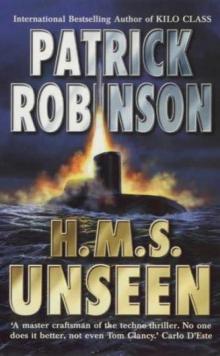 H.M.S. Unseen am-3
H.M.S. Unseen am-3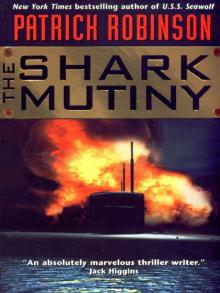 The Shark Mutiny (2001)
The Shark Mutiny (2001)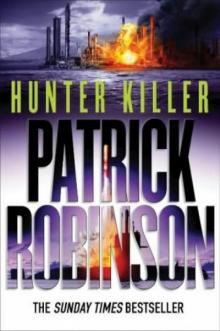 Hunter Killer am-8
Hunter Killer am-8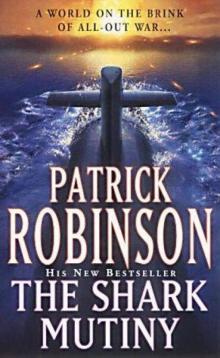 The Shark Mutiny am-5
The Shark Mutiny am-5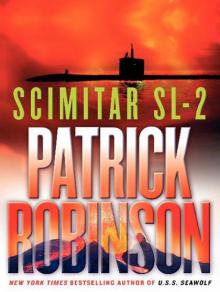 Scimitar SL-2
Scimitar SL-2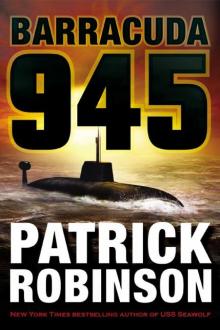 Barracuda 945 am-6
Barracuda 945 am-6 Hunter Killer
Hunter Killer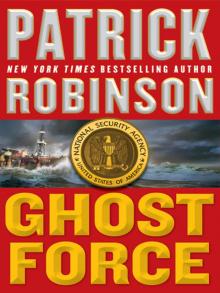 Ghost Force
Ghost Force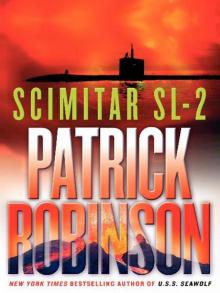 Scimitar SL-2 (2004)
Scimitar SL-2 (2004)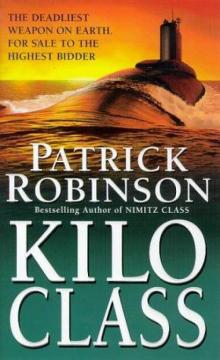 Kilo Class am-2
Kilo Class am-2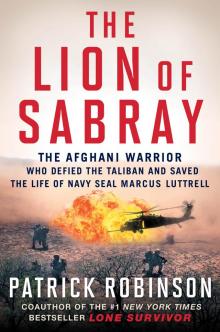 The Lion of Sabray
The Lion of Sabray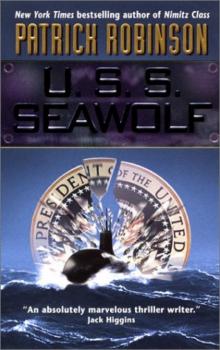 U.S.S. Seawolf am-4
U.S.S. Seawolf am-4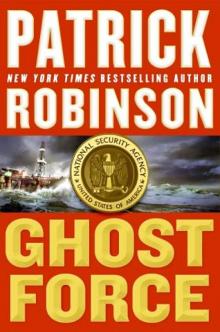 Ghost Force am-9
Ghost Force am-9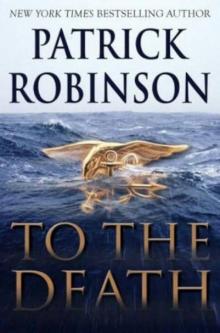 To the Death am-10
To the Death am-10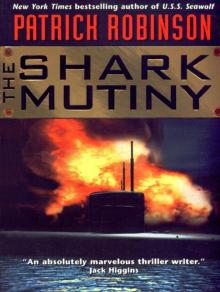 The Shark Mutiny
The Shark Mutiny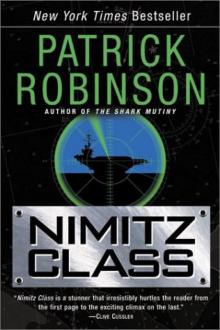 Nimitz Class am-1
Nimitz Class am-1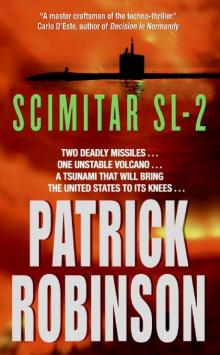 Scimitar SL-2 am-7
Scimitar SL-2 am-7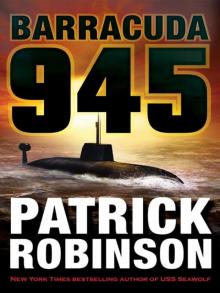 Barracuda 945
Barracuda 945 Intercept
Intercept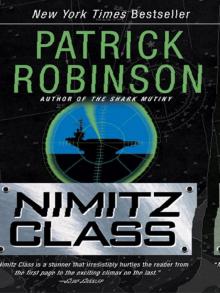 Nimitz Class (1997)
Nimitz Class (1997)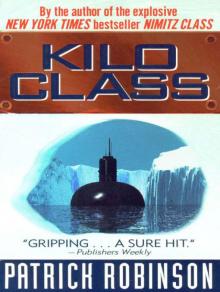 Kilo Class
Kilo Class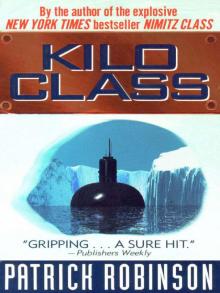 Kilo Class (1998)
Kilo Class (1998) Diamondhead
Diamondhead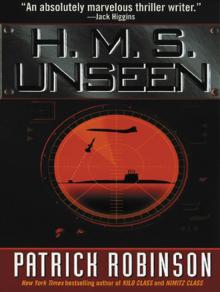 H.M.S. Unseen
H.M.S. Unseen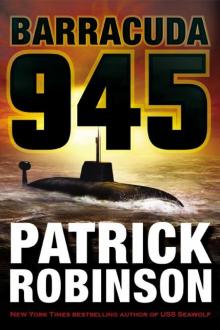 Barracuda 945 (2003)
Barracuda 945 (2003)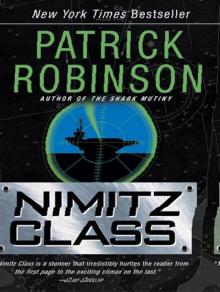 Nimitz Class
Nimitz Class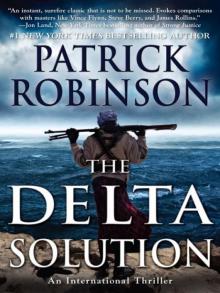 The Delta Solution
The Delta Solution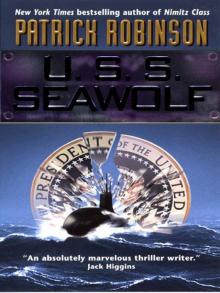 U.S.S. Seawolf
U.S.S. Seawolf